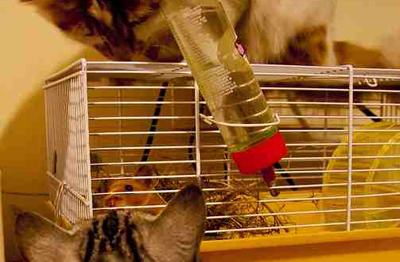Aug 2, 2011 5
A question of trust
In seeking an antidote to the selfish ravings of Somalia-bound Liz Jones (I’m not linking. You’ll work it out, but I don’t suggest you try too hard), a kind soul pointed me towards the wise words of Barry Schwartz on society’s loss of wisdom. It’s a great piece: one of those tub-thumping, uplifting TED talks that gets you nodding and waving along with his thesis. Whooping, even.
Basically, he says we’ve dispensed with our humanity in our quest for efficiency and profit. The wrong things are being measured. What really counts in any public-facing service is an appreciation of the softer aspects of, well, human interaction. We’ve lost the wisdom that gives us sensible decision-making, discretion and the ability to “get” all this. Perhaps not “lost”, as much as “designed-out”, in order to please all sorts of other gods.
What’s not to like? How could he possibly be wrong?
There he is, pointing to the job description of the janitor who has a whole load of specified tasks to perform. Mop the floor. Straighten the curtains. Swab the sink. But nowhere, nowhere, does it say: “Be nice to people. Be human. Be flexible.” (In a really perverse way, Bonkers Liz was saying something similar. But from a position of ignorance and vacuous moral bankruptcy, so basically, she can fuck right off.)
And, one might argue, does a job description need to spell out the requirement to be nice? I don’t know, perhaps it would make some difference if it were written down? I’m not convinced.
In the murky world of measurability and management, what does it even mean, anyway? If you put your cleaning out to tender, and one company comes back with a price that’s 10% higher than their competitor, but they promise to smile a lot more at people, and leave a bit of cleaning until tomorrow if someone really just needs a nice chat instead…what then?
Because when you do start buying into this idea, and go down the road of rewarding the soft stuff like satisfaction and happiness, all sorts of strange things are going to happen.
Only last month I heard tales from a friend whose former employer was very keen for staff to “revisit” customer surveys that weren’t high enough, point out to the customer that their personal bonuses were connected to the score, emphasise that the survey wasn’t the place for all their woes with the company to be vented, and see if they couldn’t nudge it up a couple of points. Seriously.
You get what you measure, remember?
Or rather, you get the measurements that lead to a benefit for the person being measured.
And there’s a double-edged sword in all of this. Mr Schwartz and his cheering audience are doing a great TED-style job of assuming good intent. They’re thinking of all the upside that comes from freeing people up to be a bit nicer. Like that extra latitude to go and make a cup of tea for Mrs Jones through being given a bit of slack on the amount of loo-scrubbing they have to do.
They’re probably not thinking of the janitor who is a living misery to the people around him, but who, when challenged, points to the mopped floor, the straight curtains, the swabbed sink… Fancy taking on that performance review? Substituting the subjective judgements of whether someone “has the right attitude” for the hard measures of dustiness or shine? Subjectivity that puts feudalistic power back in the hands of managers who can bully or fire pretty much at will? Always a trade-off, isn’t there?
One persons’s empowered janitor is another person’s slacker-in-waiting. One person’s disability benefit is another’s disempowering handout. One banker’s justified performance bonus is…ok, perhaps that’s too far.
But it’s just Red vs Blue. The eternal debate. Centralise, decentralise. Liberate, control. Trust, assure.
Reds are great at spending someone else’s money. Blues think that pain is a far better motivator.
Trust. Trust. It all really comes down to trust. And so much of trust is based on visibility.
What we decide, what we believe, is based on what we see. The stories we’re told. And here there is an asymmetry. Negative stories travel fast, and easily become powerful myths. If conservative forces don’t believe, deep down, in public service provision at all, that will drive the narrative.
Transparency means that we get a lot more narrative. Blue editors have no end of material, and mass-consumption platforms on which to put it, to propagate Schwartz’s death of wisdom. And when they also claim to be willing to wave aside protocol and contract to “do the right thing”, the dissonance can be shocking.
I’ll end this by mentioning a fantastic piece by Onora O’Neill, one of the most enlightened people it’s my pleasure to know. She thinks rather harder about these things than most. Join her.

